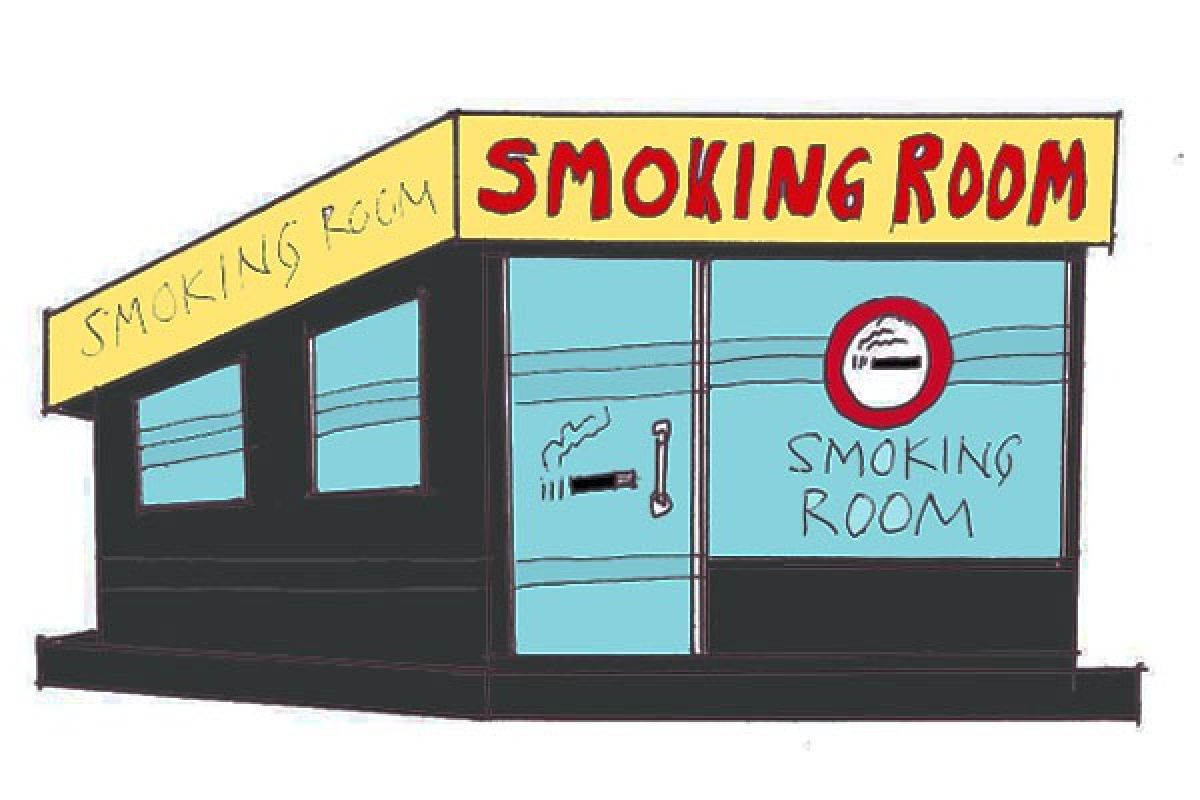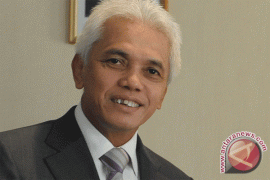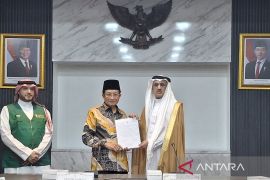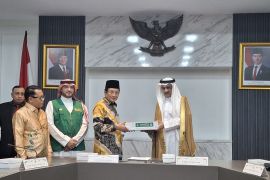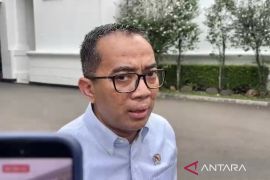More than one-third of the population of Indonesia are smokers, and some 20 percent of teenagers between 13 to 15 years also smoke.Jakarta (ANTARA News) - The epidemic of tobacco consumption has reached an alarming level in Indonesia, where more than one-third of the countrys population are smokers.
Tobacco is one of the four main risk factors behind non-communicable diseases, mostly cancers, cardiovascular and lung diseases, and diabetes.
Cases of non-communicable disease caused by tobacco consumption now pose a serious threat to the sustainability of the National Health Security Program in Indonesia, according to Health Minister Nila Djuwita Moeloek.
While opening the 4th Indonesian Conference on Tobacco or Health (ICTOH) in Jakarta on Monday, the health minister remarked that the cost for the treatment of heart and arterial diseases has reached Rp6.59 trillion, but according to the Healthcare and Social Security Agency (BPJS), it is higher, actually reaching some Rp7.4 trillion.
Nila noted that this data could be trusted because the BPJS would only disburse funds if the patients of tobacco-related diseases were diagnosed properly.
She reiterated that more than one-third of the population of Indonesia are smokers, and some 20 percent of teenagers between 13 to 15 years also smoke.
Besides posing a serious threat to the National Health Security Program, non-communicable diseases and tobacco consumption also threaten Indonesia's Sustainable Development Goals (SDGs).
"The majority of non-communicable diseases are associated with unhealthy lifestyles of smoking and consuming alcoholic drinks," the health minister noted.
Hence, the World Health Organization (WHO) has urged governments around the world to increase taxes on cigarettes and other tobacco products to save lives and generate funds for better health services.
According to WHO, not many governments make full use of tobacco taxes to dissuade people and help them quit smoking.
It recommends that at least 75 percent of the price of a pack of cigarettes should be taxed.
The WHO has found that one person dies about every six seconds from tobacco-related diseases, equivalent to some six million people per year.
The 4th ICTOH was held by the Ministry of Health and the Tobacco Control Support Center of the Indonesian Public Health Association (TCSC-IAKMI), in a bid to reduce the number of future smokers.
From November 25 to 27, 2016, the 3rd ICTOH was held in Yogyakarta, where the conference brought together parties concerned about tobacco control efforts for Indonesias young generation.
Government agencies, academics, professional organizations, community organizations, researchers, students, media, and the public attended the conference to study various issues surrounding comprehensive tobacco control.
TCSC-IAKMI Chairperson Widyastuti Soerojo remarked at the conference last year that teenagers are the target of the tobacco industries, who hope they will become long-term consumers.
According to Widyastuti, the tobacco industries exploit teenagers to become long-term consumers as about 70 percent of new smokers are young people under 18 years.
Widyastuti said if teenagers stopped smoking, the tobacco industries would go bankrupt, and therefore, they are trying to target young persons between 13 and 19 to be potential customers.
Further, she noted that tobacco in the form of cigarettes is not normal goods because it contains addictive substances and toxins, as well as being one of the factors for the spread of non-communicable diseases.
Another speaker at the conference last year, Union Regional Asia Pacific Deputy Tara Singh Bam, remarked that tobacco is the number one killer in the world, and necessary measures are needed to prevent young people from being exposed to the dangers of smoking, and to help smokers quit smoking.
"Tobacco has killed more than 800 million men around the world. Every year, five million people worldwide, including more than 200,000 people from Indonesia, are killed by tobacco," Tara said.
According to Tara Singh Bam, Indonesia currently does not have strong regulations on tobacco control, making the country a good target for tobacco industry marketing.
Indonesia is the only country in Southeast Asia that has not yet ratified or acceded to the Framework Convention on Tobacco Control (FCTC) of the World Health Organization (WHO).
Now there are 180 countries that are part of the Framework Convention on Tobacco Control of the World Health Organization, which jointly fights the negative effects of tobacco.
The number of tobacco-related disease victim is forecast to rise to more than eight million people per year by 2030, unless strong measures are taken to control what it calls a "tobacco epidemic."
There are one billion smokers worldwide, but many countries have extremely low tobacco tax rates, and some have no special tobacco taxes at all, the WHO said.
In October 2016, the government of Indonesia raised the excise tax tariffs on tobacco through the Finance Ministers Regulation No.147/PMK.010/2016.
In the new policy, the highest tobacco excise duty hike of 13.46 percent was placed on machine-made white cigarettes (SPM) and 0 percent for category IIIB hand-rolled clove flavored cigarettes (SKT). The average increase was 10.54 percent.
Besides raising the excise tax rates on tobacco, the government also increased the retail prices of cigarettes by about 12.26 percent.
The tobacco tariff rates have been raised to control production, regulate manpower, end the sale of illegal cigarettes and increase revenue in the excise sector.(*)
Reporter: Otniel Tamindael
Editor: Heru Purwanto
Copyright © ANTARA 2017
